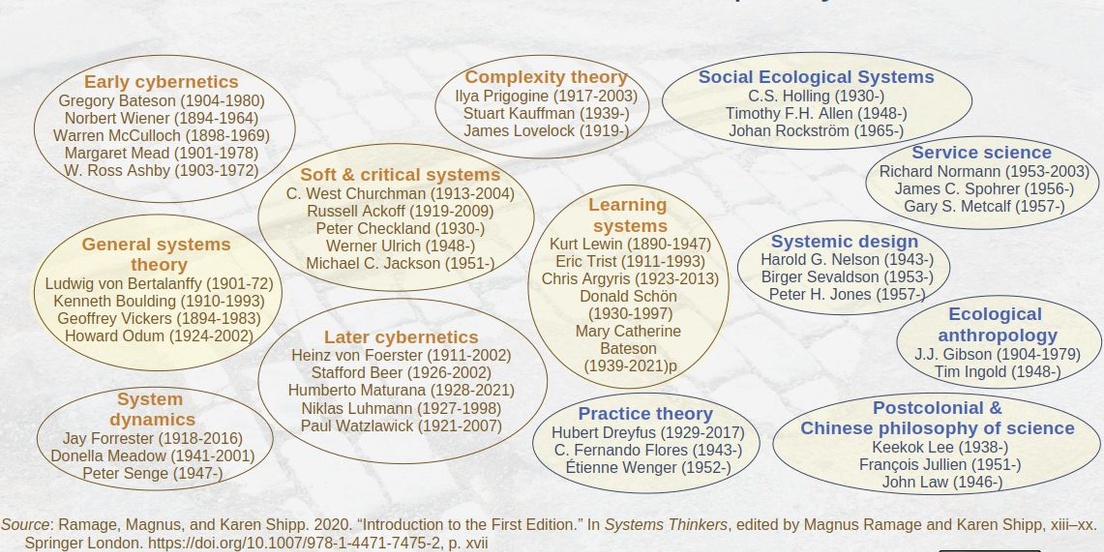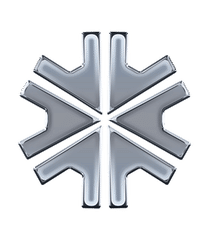
Evolving Styles for Learning Systems Thinking

Hosted by
Systems Thinking Ontario
Thursday, February 13th 2025
6:30PM to 8:15PM EST
In-Person
Address available to attendees
We missed you this time around!

Systems thinking is an approach with a long history and a large legacy of knowledge. Much of the educational material has roots in the 1970s-1990s, incrementally improved. For learners at a higher education level in 2025, what has changed so that the pedagogical style should be altered?
The Understanding Systems course in the master's program in Strategic Foresight and Innovation at OCADU was originally developed in 2008. This predates the founding of the 2012 first Relating System Thinking and Design symposium, through to an RSD14 scheduled for Toronto this October.
For the winter 2025 session of Understanding Systems, the opportunity was taken to update the approach to prioritize (i) artifacts, (ii) methods, and then (iii) theory. The transition from the prior syllabus towards updated content includes reflection-in-action, not only of class participants, but also the instructors.
About the session
Some topics for consideration include:
(a) Technology changes
- Remote online cohorts (multiple time zones) over the Internet, as compared to in-person multi-group immersion
- Softcopy readings, with potential complements in rich media (e.g. videos on YouTube)
- Generative AI for absorption (e.g. literature review abstracts, podcast creation) and for collaborating (e.g. as editing assistant, as foil or as tutor)
(b) Learner changes:
- Pre-pandemic meetings vs. post-pandemic WfH
- Generations: Boomers, Gen X, Millennials, Gen Z, Gen Alpha
- Training and experiences, with undergraduate majors, work and career shifts
(c) Social and economic changes:
- M.Des, MBA, or other certifications (e.g. EdX, Coursera)
- Domestic and international learners (with fees, part time or full time)
- Pressures on faculty (provincial funding, departmental changes)
Session Leaders
The panel for this session includes:
- Stephen Davies, instructor of the Understanding Systems course at OCADU, and
- David Ing, a previous instructor at OCADU in 2020, and the author of prior courses at Aalto University and University of Toronto.
This session will be moderated by Zaid Khan, a graduate of the SFI program.
Venue
This meeting will be conducted in person at OCADU Graduate Programs, 205 Richmond Street West, Room 510.
6:30pm to 8:15pm
Optional conversation over dinner, afterwards.
Platform Sponsors

Don't let broken lines of code, busted API calls, and crashes ruin your app. Join the 4M developers and 90K organizations who consider Sentry “not bad” when it comes to application monitoring. Use code “guild” for 3 free months of the team plan.
https://sentry.io

Torc is a community-first platform bringing together remote-first software engineer and developer opportunities from across the globe. Join a network that’s all about connection, collaboration, and finding your next big move — together.
Join our community today!

We missed you this time around!

Platform Sponsors

Don't let broken lines of code, busted API calls, and crashes ruin your app. Join the 4M developers and 90K organizations who consider Sentry “not bad” when it comes to application monitoring. Use code “guild” for 3 free months of the team plan.
https://sentry.io

Torc is a community-first platform bringing together remote-first software engineer and developer opportunities from across the globe. Join a network that’s all about connection, collaboration, and finding your next big move — together.
Join our community today!
Evolving Styles for Learning Systems Thinking

Hosted by
Systems Thinking Ontario
Feb
13
Thursday, February 13th 2025
6:30PM to 8:15PM EST
In-Person
Address available to attendees
Systems thinking is an approach with a long history and a large legacy of knowledge. Much of the educational material has roots in the 1970s-1990s, incrementally improved. For learners at a higher education level in 2025, what has changed so that the pedagogical style should be altered?
The Understanding Systems course in the master's program in Strategic Foresight and Innovation at OCADU was originally developed in 2008. This predates the founding of the 2012 first Relating System Thinking and Design symposium, through to an RSD14 scheduled for Toronto this October.
For the winter 2025 session of Understanding Systems, the opportunity was taken to update the approach to prioritize (i) artifacts, (ii) methods, and then (iii) theory. The transition from the prior syllabus towards updated content includes reflection-in-action, not only of class participants, but also the instructors.
About the session
Some topics for consideration include:
(a) Technology changes
- Remote online cohorts (multiple time zones) over the Internet, as compared to in-person multi-group immersion
- Softcopy readings, with potential complements in rich media (e.g. videos on YouTube)
- Generative AI for absorption (e.g. literature review abstracts, podcast creation) and for collaborating (e.g. as editing assistant, as foil or as tutor)
(b) Learner changes:
- Pre-pandemic meetings vs. post-pandemic WfH
- Generations: Boomers, Gen X, Millennials, Gen Z, Gen Alpha
- Training and experiences, with undergraduate majors, work and career shifts
(c) Social and economic changes:
- M.Des, MBA, or other certifications (e.g. EdX, Coursera)
- Domestic and international learners (with fees, part time or full time)
- Pressures on faculty (provincial funding, departmental changes)
Session Leaders
The panel for this session includes:
- Stephen Davies, instructor of the Understanding Systems course at OCADU, and
- David Ing, a previous instructor at OCADU in 2020, and the author of prior courses at Aalto University and University of Toronto.
This session will be moderated by Zaid Khan, a graduate of the SFI program.
Venue
This meeting will be conducted in person at OCADU Graduate Programs, 205 Richmond Street West, Room 510.
6:30pm to 8:15pm
Optional conversation over dinner, afterwards.
Get in touch!
hi@guild.host